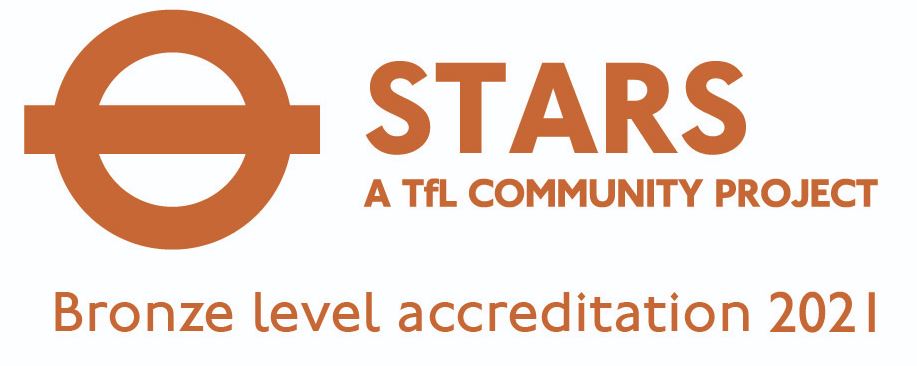SUPPORTING YOUR CHILD AT HOME
A number of parents/carers have asked school staff about the best way they can support their children's learning at home. This page is intended to give some guidance on how you can do just that. It is intended as a support for our whole school community and will be added to and amended as guidance on best practice changes.
APPLICABLE TO ALL YEAR GROUPS
HANDWRITING
HOW TO SUPPORT YOUR CHILD WITH THEIR READING
One of the best ways to support your child with their learning is to read with them on a daily basis. Here are some tips on doing this effectively:
Reading is the gateway to your child successfully accessing the whole school curriculum
Please click on the link below for further information on reading including a guide on the school's approach to reading and a recommended reading list.
There is also a link for a guide on different types of questions you might ask your child while reading with them. We hope you find this useful.
- Try and get into a routine where it is something your child knows is something that happens on a daily basis.
- Make it a positive and enjoyable experience. Something your child looks forward to. Maybe reading time is associated with having a biscuit or snuggling up somewhere cosy.
- Where possible, share the experience with your child. It is important your child is reading their book out loud, especially when your child is younger (although you are never too old to read a book to somebody else!).
- There might also be times where you read to your child and they follow or they read silently. It is fine to use different models. Some children read to their younger siblings or even to a pet.
- Create a reading culture in your home. if you are asking your child to read while others are watching television or playing computer games, your child's ability to engage in reading diminishes.
- Ask your child questions about what they are reading. This supports your child's understanding of texts they are reading and ensures their fluency in reading is matched by their understanding.
- Talk about vocabulary encountered in what your child is reading. Discussing their understanding of new words helps them to develop their own vocabulary and builds confidence in all areas of their learning.
- Make sure that your child's reading record is being updated on a daily basis. Parents/carers are encouraged to write in these but when old enough, children can manage these themselves. The important thing is that your child is reading as often as possible.
Reading is the gateway to your child successfully accessing the whole school curriculum
Please click on the link below for further information on reading including a guide on the school's approach to reading and a recommended reading list.
There is also a link for a guide on different types of questions you might ask your child while reading with them. We hope you find this useful.
APPLICABLE TO NURSERY, RECEPTION, YEAR 1 AND YEAR 2
HOW TO SUPPORT YOUR CHILD WITH THEIR PHONICS
At Princess Frederica we teach phonics through a programme called 'Monster Phonics'. For some tips on how to support your child with their reading, click on the link below. The link will also take you to the 'Monster Phonics' website. Please take some time to look around the site to help you understand how your child is taught phonics when they are at school.
The school supports parents and carers on how to support their child with phonics and early reading through workshops. Please see the latest presentation that was used in November 2021.
APPLICABLE TO YEAR 6
SUPPORTING YOUR CHILD IN THE LEAD UP TO KEY STAGE 2 SATS (YEAR 6)
Please see the attached guidance that was used for the parent workshop on KS2 SATS. Please don't hesitate to ask if you have any questions about the KS2 SATS process.
APPLICABLE TO YEAR 1 TO YEAR 6
PARENT PRESENTATIONS AT THE START OF THE AUTUMN TERM 2023
Please see presentations attached that were used by teachers at the school when delivering content to parents and carers at recent meetings. Thank you if you were able to join us. If you were not able to, please take some time to look through the slides that give a guide to:
- The expectations for the year
- Days for the diary: e.g. Library, PE, spelling test
- Curriculum
- KIRFS - key instant recall facts that your child should know in maths
- How you can support your child at home.
|
MATHS MASTERY PRESENTATIONS SEPTEMBER 2022
READING AND WRITING PRESENTATION SEPTEMBER 2022
|
LEARNING OBJECTIVES IN READING, WRITING AND MATHS
There are a number of different ways to support your child at home. The objectives listed below show what teachers use to support judgements they are making and key elements they are teaching within the year group they teach in. You might find it useful to look at these objectives to see the expectation is for a child working within a given year group. You may choose to look at an objective and support your child at home by working on it together.
SECONDARY SCHOOLS INFORMATION
Please find information below about the process around secondary transition.
If you live in Brent local authority and wish to apply for a secondary school place for your Year 6 child, please click on the link below.
KNOWLEDGE ORGANISERS
Knowledge organisers give a bank of information that supports children as they move through a unit of learning. These are always published before the holidays before they are due to be taught. This means parents and carers can support their child's learning by pre-teaching material they will be covering. Your child will then be a much more confident space to excel in this particular subject area when they return to school.
To read more about knowledge organisers and see the most recent ones available for your child's year group, please click on the link below.
To read more about knowledge organisers and see the most recent ones available for your child's year group, please click on the link below.
LINKS TO YEAR GROUP FOCUS PAGES
please click on the link below to be taken to the year group your child. This includes gives information such as timetables.





